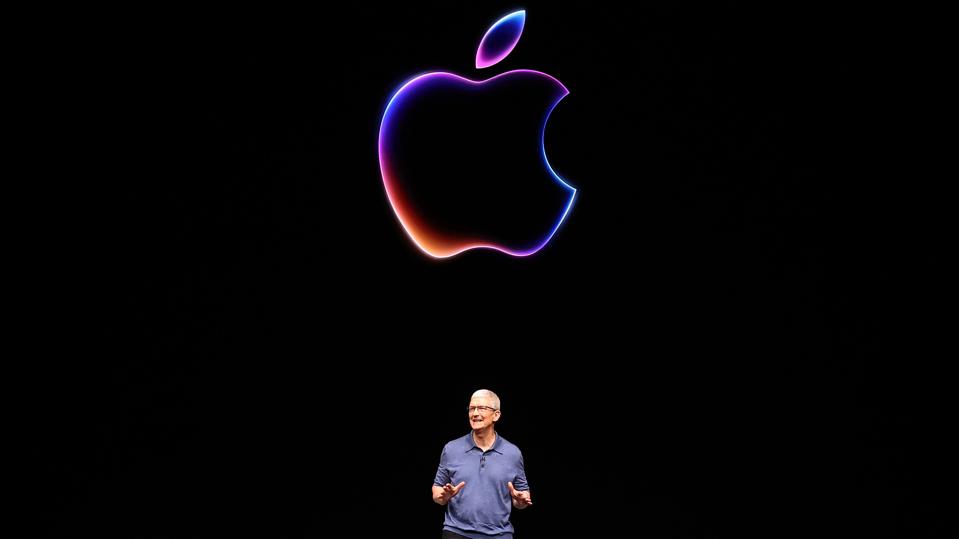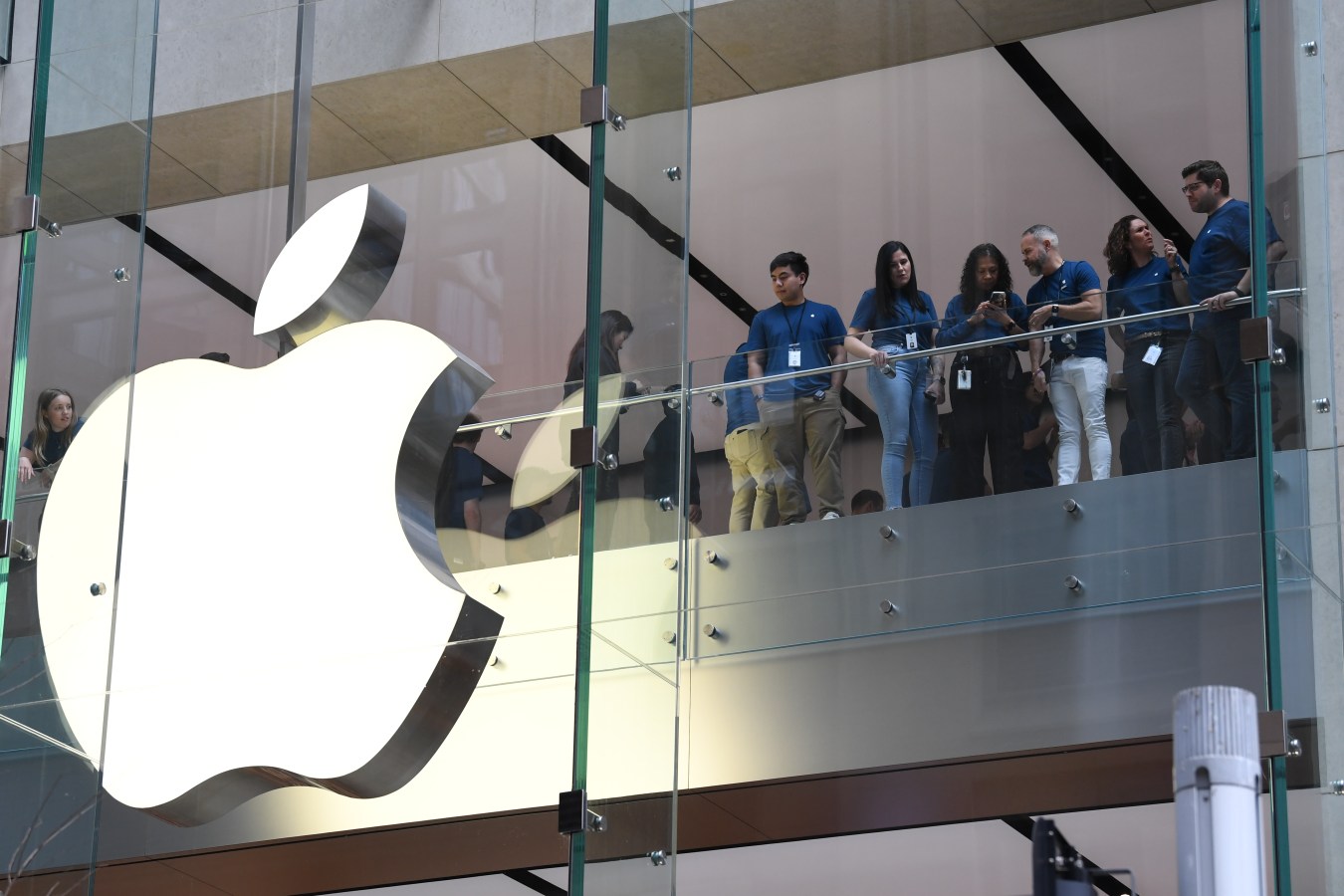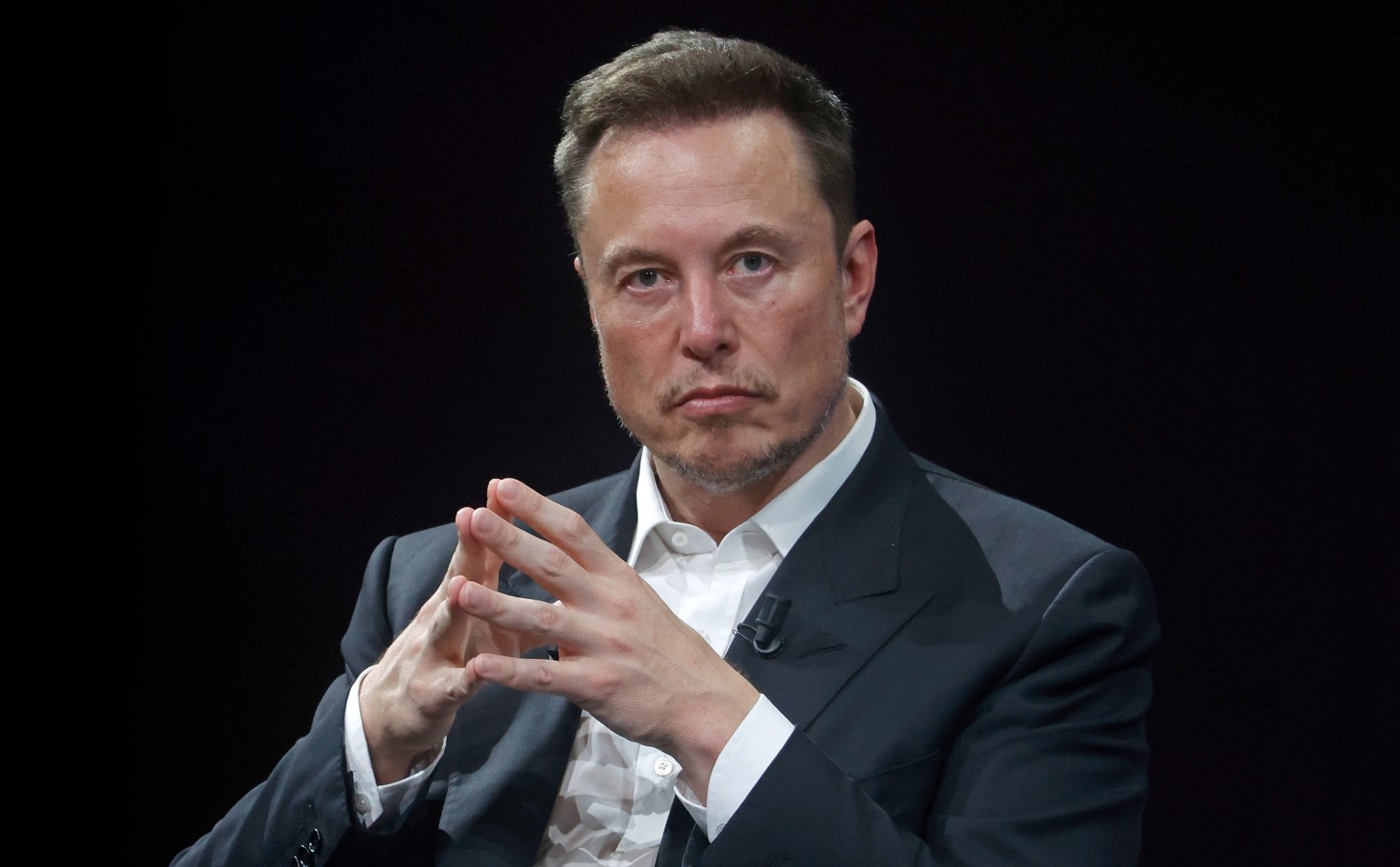Apple tallied yet another all-time high share price Monday after a pair of investment firms meaningfully hiked their price targets for the stock, the latest positive push for Apple stock ahead of the hotly anticipated release of generative artificial intelligence iPhones.

Apple CEO Tim Cook at the Worldwide Developers Conference on June 10.
Getty Images
Key Takeaways
- Apple stock rose as much as 2.9% to a new intraday peak of $237.23 in Monday trading, with its over $234 share price by mid-afternoon on pace to top last week’s record close of $232.98, growing Apple’s market capitalization to a world record $3.59 trillion, more than $200 billion higher than the next largest company, Microsoft at $3.36 trillion.
- The lift came after Bloomberg reported 33% year-over-year growth in Apple’s India sales, a strong indication of the company’s global growth potential amid questions about declining sales in its key China segment, as well as bullish notes from analysts at Loop Capital and Morgan Stanley musing on Apple’s earnings potential as its debut of its first AI iPhones is just months away.
- Loop Capital analysts led by Ananda Baruah changed their recommendation for Apple stock from a hold to a buy, upping its share price target from $231 to $300, the highest of any analyst tracked by FactSet, implying an Apple fair market value of $4.6 trillion, some 28% higher than it now stands.
- The firm said it sees an opportunity for Apple to distinguish itself as the “Gen AI base camp of choice,” likening it to how Apple benefited from the initial release of the iPod and iPhones in capturing consumers’ attention and capital over the last two decades.
- The Erik Woodring-led Morgan Stanley group named Apple its favorite U.S. IT hardware pick and hiked their target from $213 to $273, implying 16% upside and a $4.2 trillion market cap.
- Morgan Stanley similarly upgraded expectations for the “impending” iPhone upgrade cycle, projecting some 498 million new iPhone sales in its 2025 and 2026 fiscal years and $488 billion worth of iPhone revenues during that time frame, a 22% increase from the $399 billion Apple is projected to bring in during its 2023 and 2024 fiscal years ending in September.
Crucial Quote
“Never in Apple’s 40-year history has the iPhone installed base been so large (1.3b+ devices), replacement cycles been so extended (at 4.8 years), and a new technology been limited to such a small cohort of users (8% of the iPhone/iPad installed base) all at the same time,” declared Woodring.
Key Background
After years of speculation, Apple officially announced its “Apple Intelligence” generative AI plans on June 10, including the integration of the hit ChatGPT chatbot into the iOS operating system scheduled for a September release. Apple stock is up more than 20% since that announcement, outgaining the S&P 500’s 5% gain as investors bought into the company’s AI vision (the stock had lagged other big tech names like Microsoft due to a perceived deficit in the AI arms race). Apple, which had been the world’s largest company for most of the last decade, overtook Microsoft as the largest company in the world last month, having lost the title from January to June.
What To Watch For
Don’t expect evidence of an iPhone renaissance in Apple’s earnings report due Aug. 1: Analyst forecasts call for the weakest quarterly iPhone sales since 2020’s quarter ending in September, according to FactSet, at $38.7 billion. Consensus forecasts call for a record $72.4 billion of iPhone revenues this holiday quarter, though.
This article was originally published on forbes.com.
Are you – or is someone you know -creating the next Afterpay or Canva? Nominations are open for Forbes Australia’s first 30 under 30 list. Entries close midnight, July 31, 2024.
Look back on the week that was with hand-picked articles from Australia and around the world. Sign up to the Forbes Australia newsletter here or become a member here.


